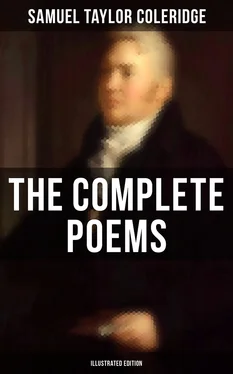Oct. 11, Syracuse, Lecky's, midnight
O young man, who hast seen, felt and known the truth, to whom reality is a phantom and virtue and mind the sole actual and permanent being, do not degrade the truth in thee by disputing. Avoid it! do not by any persuasion be tempted to it! Surely not by vanity or the weakness of the pleasure of communicating thy thoughts and awaking sympathy, but not even by the always mixed hope of producing conviction. This is not the mode, this is not the time, not the place. [Truth will be better served] by modestly and most truly saying, "Your arguments are all consequent, if the foundation be admitted. I do not admit the foundation. But this will be a business for moments of thought, for a Sabbath-day of your existence. Then, perhaps, a voice from within will say to you, better, because [in a manner] more adapted to you, all I can say. But if I felt this to be that day or that moment, a sacred sympathy would at once compel and inspire me to the task of uttering the very truth. Till then I am right willing to bear the character of a mystic, a visionary, or self-important juggler, who nods his head and says, 'I could if I would.' But I cannot, I may not, bear the reproach of profaning the truth which is my life in moments when all passions heterogeneous to it are eclipsing it to the exclusion of its dimmest ray. I might lose my tranquillity, and in acquiring the passion of proselytism lose the sense of conviction. I might become positive ! Now I am certain ! I might have the heat and fermentation, now I have the warmth of life."
THE YEARNING OF THE FINITE FOR THE INFINITE: Oct. 13, 1804, Saturday, Syracuse
Each man having a spark (to use the old metaphor) of the Divinity, yet a whole fire-grate of humanity—each, therefore, will legislate for the whole, and spite of the De gustibus non est disputandum , even in trifles—and, till corrected by experience, at least, in this endless struggle of presumption, really occasioned by the ever-working spark of the Universal, in the disappointments and baffled attempts of each, all are disposed to [admit] the jus extrinsecum of Spinoza, and recognise that reason as the highest which may not be understood as the best, but of which the concrete possession is felt to be the strongest. Then come society, habit, education, misery, intrigue, oppression, then revolution , and the circle begins anew. Each man will universalise his notions, and, yet, each is variously finite. To reconcile , therefore, is truly the work of the inspired! This is the true Atonement —that is, to reconcile the struggles of the infinitely various finite with the permanent .
A MEASURE IN SELF-REPROOF
Do not be too much discouraged, if any virtue should be mixed, in your consciousness, with affectation and imperfect sincerity, and some vanity. Disapprove of this, and continue the practice of the good feeling, even though mixed, and it will gradually purify itself. Probatum est . Disapprove, be ashamed of the thought, of its always continuing thus, but do not harshly quarrel with your present self, for all virtue subsists in and by pleasure. S. T. C. Sunday evening, October 14, 1804.
But a great deal of this is constitutional. That constitution which predisposes to certain virtues, the Δωρον Θεων, has this τεμενος Νεμεσεως in it. It is the dregs of sympathy, and while we are weak and dependent on each other, and each is forced to think often for himself, sympathy will have its dregs, and the strongest, who have least of these, have the dregs of other virtues to strain off.
THE OPERA
All the objections to the opera are equally applicable to tragedy and comedy without music, and all proceed on the false principle that theatrical representations are copies of nature, whereas they are imitations.
A SALVE FOR WOUNDED VANITY
When you are harassed, disquieted, and have little dreams of resentment, and mock triumphs in consequence of the clearest perceptions of unkind treatment and strange misconceptions and illogicalities, palpably from bad passion, in any person connected with you, suspect a sympathy in yourself with some of these bad passions—vanity, for instance. Though a sense of wounded justice is possible, nay, probably, forms a part of your uneasy feelings, yet this of itself would yield, at the first moment of reflection, to pity for the wretched state of a man too untranquil and perpetually selfish to love anything for itself or without some end of vanity or ambition—who detests all poetry, tosses about in the impotence of desires disproportionate to his powers, and whose whole history of his whole life is a tale of disappointment in circumstances where the hope and pretension was always unwise, often presumptuous and insolent. Surely an intuition of this restless and no-end-having mood of mind would at once fill a hearer having no sympathy with these passions with tender melancholy, virtuously mixed with grateful unpharisaic self-complacency. But a patient almost , but not quite, recovered from madness, yet on its confines, finds in the notions of madness that which irritates and haunts and makes unhappy.
OFFICIAL DISTRUST
Malta, Friday, Nov. 23, 1804.
One of the heart-depressing habits and temptations of men in power, as governors, &c., is to make instruments of their fellow-creatures, and the moment they find a man of honour and talents, instead of loving and esteeming him, they wish to use him . Hence that self-betraying side-and-down look of cunning; and they justify and inveterate the habit by believing that every individual who approaches has selfish designs on them.
FOR THE "SOOTHER IN ABSENCE"
Days and weeks and months pass on, and now a year—and the sea, the sea, and the breeze have their influences on me, and [so, too, has the association with] good and sensible men. I feel a pleasure upon me, and I am, to the outward view, cheerful, and have myself no distinct consciousness of the contrary, for I use my faculties, not, indeed, at once, but freely. But, oh! I am never happy, never deeply gladdened. I know not—I have forgotten—what the joy is of which the heart is full, as of a deep and quiet fountain overflowing insensibly, or the gladness of joy, when the fountain overflows ebullient.
The most common appearance in wintry weather is that of the sun under a sharp, defined level line of a stormy cloud, that stretches one-third or half round the circle of the horizon, thrice the height of the space that intervenes between it and the horizon, which last is about half again as broad as the sun. [At length] out comes the sun, a mass of brassy light, himself lost and diffused in his [own] strong splendour. Compare this with the beautiful summer set of colours without cloud.
Even in the most tranquil dreams, one is much less a mere spectator [than in reveries or day-dreams]. One seems always about to do, [to be] suffering, or thinking or talking. I do not recollect [in dreams] that state of feeling, so common when awake, of thinking on one subject and looking at another; or [of looking] at a whole prospect, till at last, perhaps, or by intervals, at least, you only look passively at the prospect.
MULTUM IN PARVO
At Dresden there is a cherry-stone engraved with eighty-five portraits. Christ and the Twelve Apostles form one group, the table and supper all drawn by the letters of the text—at once portraits and language. This is a universal particular language—Roman Catholic language with a vengeance.
The beautifully white sails of the Mediterranean, so carefully, when in port, put up into clean bags; and the interesting circumstance of the Spéronara's sailing without a compass—by an obscure sense of time.
Читать дальше












